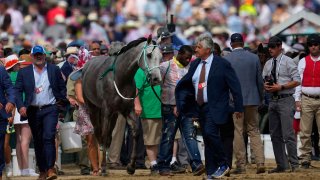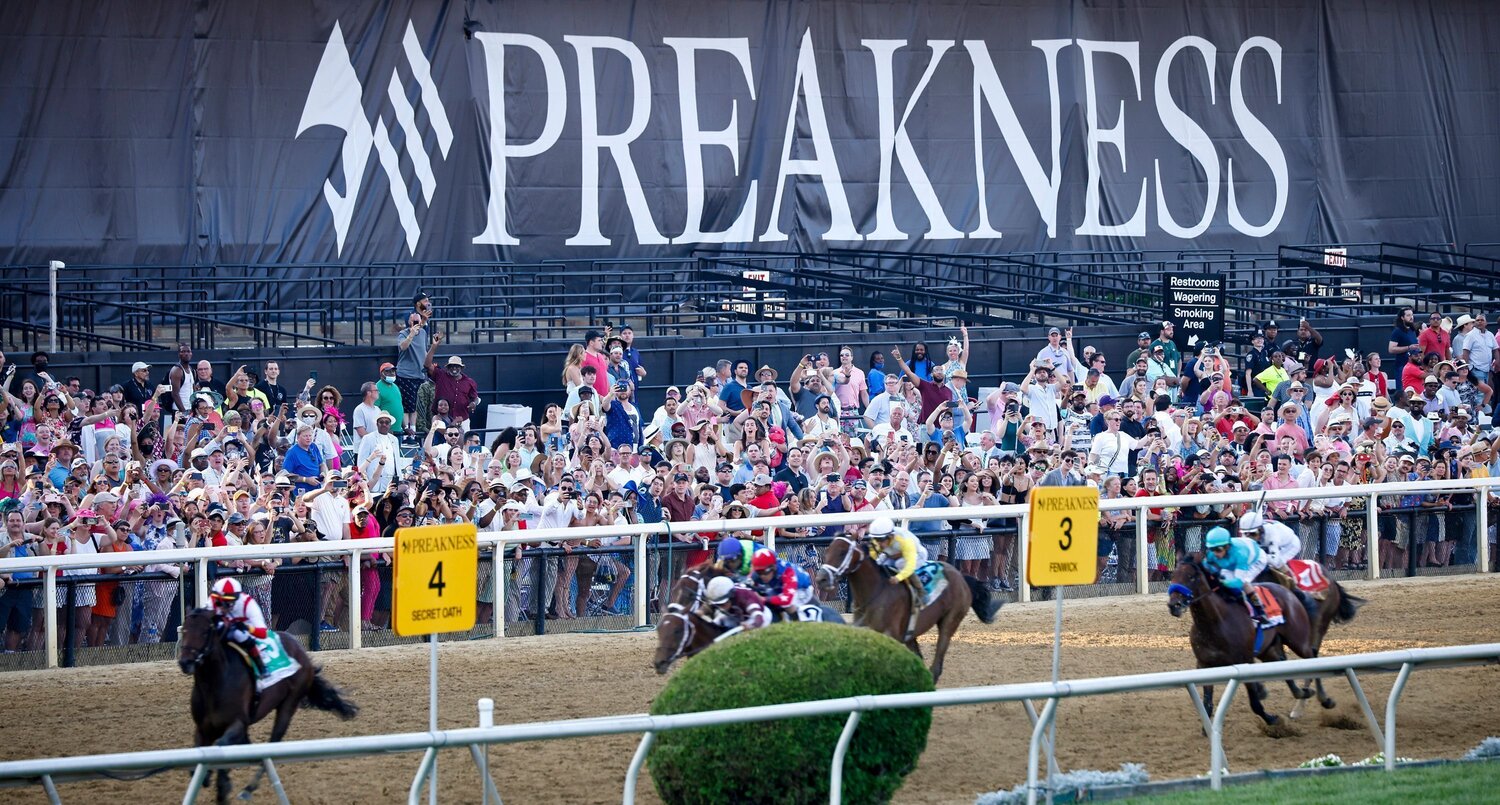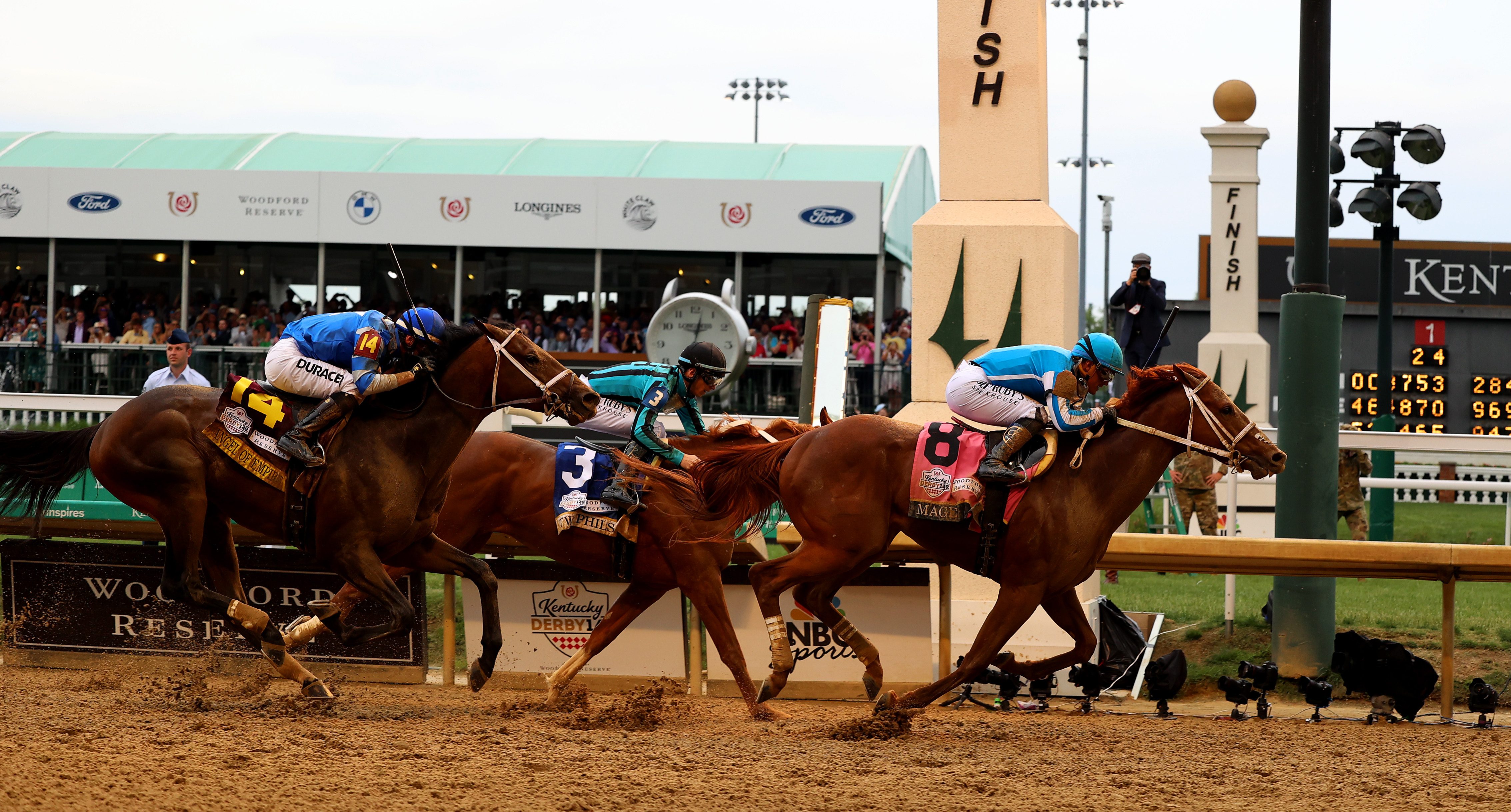
A raging thunderstorm that washed out activities Sunday morning at Churchill Downs symbolized the dark clouds hanging over the Triple Crown after a troubling string of horse deaths.
Seven horses have died following injuries at the track since April 27, including Derby entrant Wild On Ice. Freezing Point and Chloe’s Dream were euthanized after injuries before Saturday’s Kentucky Derby that was ultimately won by Mage. Four sustained catastrophic leg injuries, two succumbed suddenly from causes yet to be determined and another sustained a neck injury after flipping in the paddock.
This spate of incidents comes four years after more than 30 horses died at Santa Anita racetrack in California. Those deaths shook up the industry and resulted in safety reforms such as the Horseracing Integrity and Safety Act (HISA), which established a similarly lettered organization that set uniform safety and doping rules for thoroughbreds. A set of regulations are scheduled to take effect May 22.
Get top local stories in San Diego delivered to you every morning. Sign up for NBC San Diego's News Headlines newsletter.
The question for now is how the stunning occurrence of fatal injuries at the cathedral of horse racing affects the sport during its height of visibility with the Preakness and Belmont Stakes following over the next month. And, how horse racing responds.
“Everyone in the industry wants to make racing as safe as possible,” Hall of Fame trainer Todd Pletcher said Sunday. “And even in situations like that where right now everyone is doing everything they can to make sure the horses are going out there in the safest possible conditions, we still had two fatal breakdowns yesterday. It’s something as a trainer that keeps you up at night.”
Churchill Downs said in a statement Saturday night that it is working with the Kentucky Horse Racing Commission and Horseracing Integrity and Safety Authority to investigate each death. A subsequent statement from the HISA organization said Chloe’s Dream and Freezing Point “passed all inspections without incident” while being observed in the paddock and post parade.
An examination of factors including necropsies, preexisting health conditions, training sessions and inspection of track surfaces will take several weeks. Racetrack surface expert Mick Peterson, who has worked with Churchill Downs since 2008 and was once retained by HISA, said Sunday that the surface was consistent.
The director of the University of Kentucky’s racetrack safety program added that the evaluation is ongoing to keep the track condition uniform and make needed improvements.
“We’ve got to look at every factor on that and get it so that we reduce the risk further and further and further to protect them,” Peterson said. “But we need to learn more in order to understand whether this consistency is going to get us to the safety we need. And we need to keep improving it.”
Concerns still hovered over the 149th Derby, which went off with the field reduced to 18 horses following five scratches in the days leading up. That list of defections included Pletcher-trained Forte, the initial favorite, on Saturday morning because of a bruised foot.
“I think he would have performed well (Saturday),” the trainer said. “Unfortunately, that wasn’t an option.”
Lying ahead for many trainers and ownership is whether to run horses in the Preakness on May 20 in Baltimore. The Triple Crown's second jewel is shorter at 1 3/16th mile but occurs just two weeks after the Derby compared to the typical one-month layoff.
Ramiro Restrepo, Mage’s part-owner and a bloodstock agent, will watch the colt’s workouts this week and consult trainers and other owners before deciding his immediate plans.
His colt’s safety and well-being is always the priority, particularly after a tragic week of loss with the animals they’re devoted to.
“We take care of them more than we take care of our children,” said Restrepo, who expressed condolences to stables that have lost horses. “But we had a confidence in how the horse had been responding. So, we can only control what’s in our barn and what’s in front of us.”



